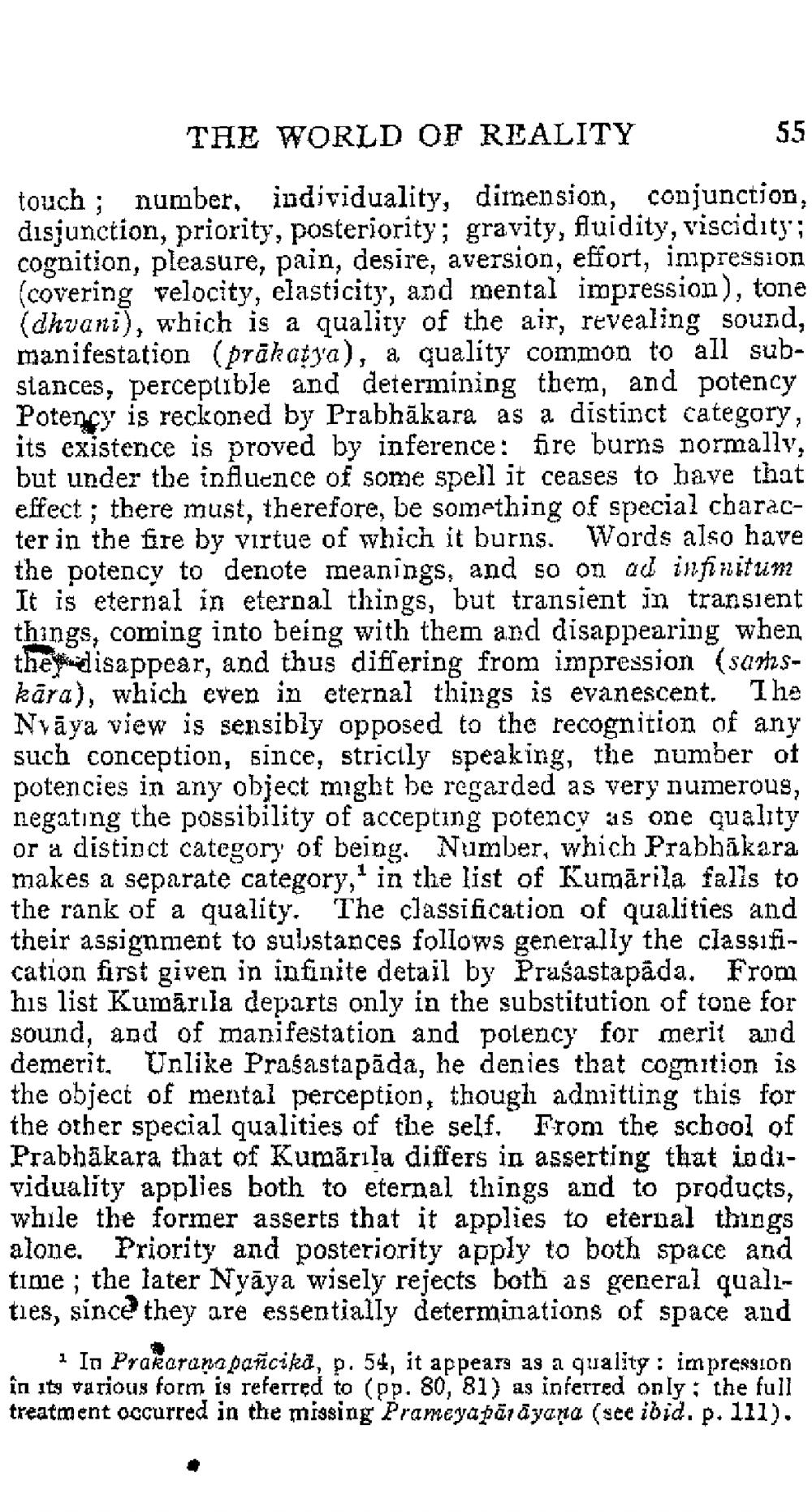________________
TAE WORLD OF REALITY
55
touch; number, individuality, dimension, conjunction, disjunction, priority, posteriority; gravity, fluidity, viscidity'; cognition, pleasure, pain, desire, aversion, effort, inipression (covering velocity, elasticity, and mental impression), tone (dhvani), which is a quality of the air, revealing sound, manifestation (prākatja), a quality common to all substances, perceptible and determining them, and potency Potency is reckoned by Prabhākara as a distinct category, its existence is proved by inference: fire burns normally, but under the influence of some spell it ceases to have that effect; there must, therefore, be something of special character in the fire by virtue of which it burns. Words also have the potency to denote meanings, and so on ad infinitum It is eternal in eternal things, but transient in transient things, coming into being with them and disappearing when they disappear, and thus differing from impression (sanskāra), which even in eternal things is evanescent. The Nvāya view is sensibly opposed to the recognition of any such conception, since, strictly speaking, the number of potencies in any object might be regarded as very numerous, negating the possibility of accepting potency as one quality or a distinct category of being. Number, which Prabhākara makes a separate category, in the list of Kumārila falls to the rank of a quality. The classification of qualities and their assignment to substances follows generally the classification first given in infinite detail by Prasastapäda. From his list Kumārıla departs only in the substitution of tone for sound, and of manifestation and polency for merit and demerit. Unlike Prasastapāda, he denies that cognition is the object of mental perception, though adnitting this for the other special qualities of the self, From the school of Prabhākara that of Kumārıla differs in asserting that individuality applies both to eternal things and to products, while the former asserts that it applies to eternal things alone. Priority and posteriority apply to both space and time; the later Nyāya wisely rejects both as general quallties, since they are essentially determinations of space and
In Prakarana pañcika, p. 54, it appears as a quality : impression în its various form is referred to (pp. 80, 81) as inferred only the full treatment occurred in the missing Prameyapārāyana (see ibid. p. 111).




